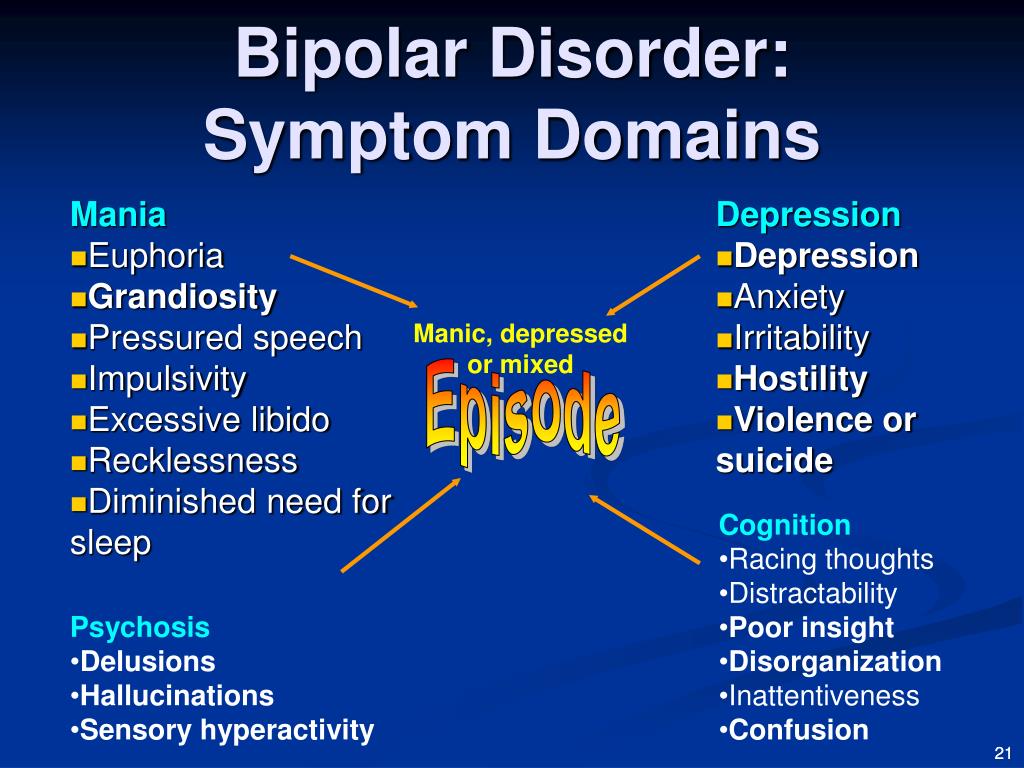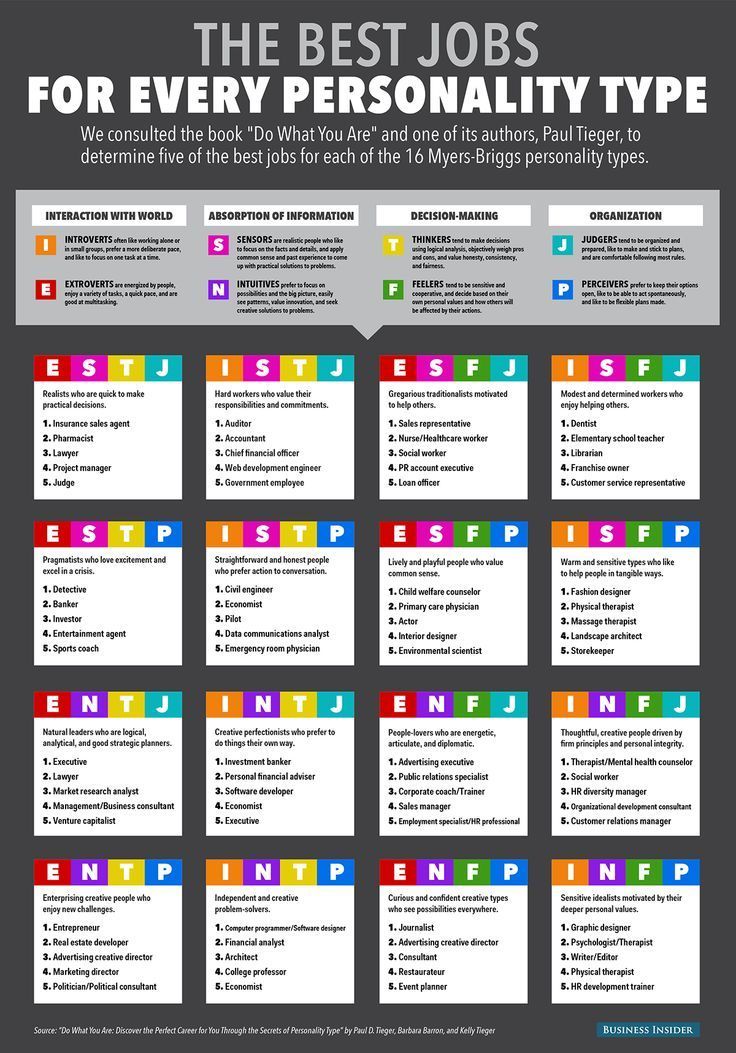Marriage for security
Building Security in Your Marriage
Building Security in Your MarriageHave you been wondering lately if your mate is truly committed to you? Do you question if your spouse still loves you the way he or she did when you were first married? Are you uncertain of your mate’s faithfulness because you have recently caught them lying about a relationship with the opposite sex? Do you fear that you and your spouse are drifting apart? If you answered yes to any of these questions, then your relationship is lacking one of the most important building blocks of a strong marriage: security in your relationship.
If you sense this lack of security in your relationship, is there a way it can be restored? Do you have to continue living with uncertainty and the anxiety of questioning your mate’s love? Is there a solution to this doubt and insecurity? I believe there is an answer to this dilemma.
What is it like living with insecurity in your marriage?
Many husbands and wives have confessed to me that they can sense their mate beginning to drift away from them. This insecurity creates one of the most anxious times in their entire life. All their hopes of a loving and committed relationship appear to be slipping away. They see what they believed was a solid rock of commitment turning into the sinking sand of uncertainty and doubt. This is not what God intends for any marriage. God’s ultimate desire is that two people become joined together with the assurance of a full commitment for life. This is why Jesus stated so emphatically, “What God has joined together, let not man separate” (Mark 10:9). This is also why Paul used Christ’s love and commitment to the church as the model for a committed marriage (Eph. 5:31-32). If this is God’s desire, how can you achieve this kind of security in your relationship?
How do you build security with your spouse?
1. Where is real security found? First, you must determine the source of all security. Why is this important? If you don’t know where to find the ultimate security in life, then you will be searching for it in the wrong places and in the wrong way. You will endlessly be thinking that security is found in a person, or in money, or material possessions. You can never find security in these things.
You will endlessly be thinking that security is found in a person, or in money, or material possessions. You can never find security in these things.
The ultimate security in life will only be found in your relationship with the Lord. Think for a moment; where in all of human history was man most secure? Was it not when Adam and Eve were in the Garden of Eden? Were they not in the most secure relationship possible when they walked with God? They had sweet fellowship with Him and God’s gracious provision was all around them (Gen. 2:15-16; Gen.3:8-9).
Therefore, you must first be enjoying the security of this fellowship with the Father through his Son Jesus Christ, if you ever expect to be equipped to deal with the insecurity in this evil world. Here is where you will be best strengthened for the struggles of an insecure relationship with your spouse. Listen to God’s promise: “Whoever listens to Me will dwell safely, and will be secure, without fear of evil”
(Prov. 1:33). The question is, are you walking with Him in a close relationship depending upon the security of His love and commitment? Are you listening to His voice that will calm the fears of your heart and direct your steps?
The question is, are you walking with Him in a close relationship depending upon the security of His love and commitment? Are you listening to His voice that will calm the fears of your heart and direct your steps?
If you have not made a personal commitment of your life to Christ, this is where you need to begin. All that God requires to begin your relationship with Him is that you acknowledge your sinful behavior to Him personally in prayer. Admit to Him that you have broken His Law, and that you are willing to turn from your independent lifestyle and begin following Him. Ask Christ to come into your heart and take control of your life. What will happen if you take this action? God declares in His Word: “Whoever calls on the name of the Lord shall be saved” (Rom. 10:13). “As many as received Him, to them He gave the right to become children of God, to those who believe in His name” (John 1:12). Jesus said, “Ask, and it will be given to you; seek, and you will find; knock, and it will be opened to you” (Matt. 7:7). Trust His promise and receive Christ now. This is where the transformation of your life begins.
7:7). Trust His promise and receive Christ now. This is where the transformation of your life begins.
If you are already a Christian, I encourage you to develop and deepen your fellowship with the Lord on a daily basis. This is where you will receive power and strength to make the changes I will encourage you to take in this article. You will also need integrity and honesty before God and with your mate to resolve the issues that have caused the insecurity in your relationship. God’s promise to you is, “He who walks with integrity walks securely, but he who perverts his ways will become known” (Prov. 10:9). If you will walk closely with the Lord and seek Him He will show you what you should do (Prov. 3:5-6). He will reveal your weaknesses and where you need to change. As you pray He will also show your spouse the same. But, you need intimacy with the Lord for all this to occur.
2. Deal with your feelings. Many times husbands and wives tell me that they thought everything was fine in their relationship with their mate, until there was a breach of faithfulness by their spouse. They felt all was secure when in fact it was not. Do you understand that the Scripture reveals that a person can feel all is secure when the reality is just the opposite? One of the best examples of this truth is when Gideon attacked the camp of the Midianites. The army of the Midianites felt very secure because they thought they had escaped from Gideon, when in fact they had not. Notice how the book of Judges relates this: “Then Gideon went up by the road…and he attacked the army while the camp felt secure” (Judges 8:11).
They felt all was secure when in fact it was not. Do you understand that the Scripture reveals that a person can feel all is secure when the reality is just the opposite? One of the best examples of this truth is when Gideon attacked the camp of the Midianites. The army of the Midianites felt very secure because they thought they had escaped from Gideon, when in fact they had not. Notice how the book of Judges relates this: “Then Gideon went up by the road…and he attacked the army while the camp felt secure” (Judges 8:11).
So, why does someone think that everything is fine in their marriage when in reality it is not? It is complacency. A person that is complacent is usually taking their mate for granted. You are thinking, He or she will always be here and would never leave me. I don’t have to make the same effort as I did when we were dating. He or she won’t ever get interested in someone else. But, this is foolish thinking. Why? A loving relationship takes constant effort from both parties. It is important to note that Paul describes love as labor. He said, “Remembering without ceasing your work of faith, labor of love, and patience of hope in our Lord Jesus Christ” (1 Thess. 1:3).
It is important to note that Paul describes love as labor. He said, “Remembering without ceasing your work of faith, labor of love, and patience of hope in our Lord Jesus Christ” (1 Thess. 1:3).
Therefore, if you want to deal with your complacency in your marriage, get to work showing your mate how much you love him or her in practical ways. Usually your spouse has been telling you how he or she wants you to love them, but you aren’t listening. You will hear your mate say things like: Why don’t you talk to me? I really wish we could spend more time together. Why aren’t you responsive to my romantic advances? Can we have more of a spiritual emphasis in our family? Why don’t we start doing fun things together? If you want to remove the complacency in your relationship then start showing your mate how much you really do love them. What is your mate crying out for in your relationship? This is where you need to begin your labor of love.
However, there is another side to feelings that is not so easy to deal with. This is when you feel your spouse is drifting away from you when in reality they are totally in love with you. In other words, your feelings are completely unfounded. Where do these groundless feelings come from? These feelings arise from your own issues of insecurity. If you believe you struggle with insecurity I would suggest reading my article Overcoming Jealousy in Your Marriage found at www.covenantkeepers.org
This is when you feel your spouse is drifting away from you when in reality they are totally in love with you. In other words, your feelings are completely unfounded. Where do these groundless feelings come from? These feelings arise from your own issues of insecurity. If you believe you struggle with insecurity I would suggest reading my article Overcoming Jealousy in Your Marriage found at www.covenantkeepers.org
Could your feelings be wrong? Of course they can. As my wife says, “Feelings can be very strong and very wrong. Let me give you some examples of why I believe your feelings can be wrong. David is one of the best biblical examples. In the Psalms, many times David expressed the fact that his emotions and feelings overwhelmed him and he wondered out loud if God would forsake him. He said, “Do not hide Your face from me; do not turn Your servant away in anger; You have been my help; do not leave me nor forsake me, O God of my salvation” (Ps. 27:9). But, when David got control of his emotions he would reject his feelings and trust in the God he knew was faithful and true (Ps. 27:13-14).
27:13-14).
So, how can you determine if your feelings are true or false? You must look at the facts of your mate’s behavior. Are your feelings substantiated by proof that your spouse is unfaithful? Has he or she said to you that they don’t love you anymore? Or, are you just speculating in your mind? If there are real proofs then begin by taking the next step in this article.
3. Confront the issues head-on. The issues that are causing insecurity in your relationship can be many and varied. Building security in your marriage requires that you confront these issues frankly in a loving but firm way. Are you questioning your mate’s love for you because you sense a distance and lack of love? Have you caught your mate viewing internet pornography? Has your spouse been harsh and angry with you on a regular basis? Is there an inappropriate relationship with a person of the opposite sex? You must deal with these issues honestly.
Paul always confronted problems in the churches to which he wrote in a loving but firm way. He did so because he knew that failure to bring up these issues would eventually ruin the church. He also encouraged those in the congregations to do the same with each other. He commanded that they should be, “speaking the truth in love, may grow up in all things into Him who is the head—Christ” (Eph. 4:15). If you speak lovingly and honestly to your mate about the issues that are dividing you, growth should be the result. For real growth and change to occur there must be a willingness to speak the truth and for the other person to hear.
He did so because he knew that failure to bring up these issues would eventually ruin the church. He also encouraged those in the congregations to do the same with each other. He commanded that they should be, “speaking the truth in love, may grow up in all things into Him who is the head—Christ” (Eph. 4:15). If you speak lovingly and honestly to your mate about the issues that are dividing you, growth should be the result. For real growth and change to occur there must be a willingness to speak the truth and for the other person to hear.
If you refuse to confront these issues frankly and sweep them under the rug, then you will only grow further apart. The issues will become worse and the insecurity in your relationship will increase. What you need to do is immediately set a time with your spouse to discuss these issues in a loving and controlled manner. Being gentle and self-controlled will also help keep your mate from becoming defensive or completely rejecting your approach. If you find no resolution to these issues, then you should call your pastor or an elder of your church for further counseling.
If you find no resolution to these issues, then you should call your pastor or an elder of your church for further counseling.
4. Love does not force. One of the greatest mistakes that an insecure spouse makes is trying to force their mate back into their commitment of love. Coercion never works. Why? The insecure spouse fails to realize that he or she cannot force their mate to love them again. This is because giving love is done out of a free choice. Love is voluntary. When the Father speaks of His love for His people He said, “I will heal their backsliding, I will love them freely” (Hos. 14:4). The word freely means voluntarily. So, God chooses to freely and voluntarily love His backsliding people. You must also be lovingly firm with your spouse without trying to force your spouse to do what you want.
So, are you using manipulative tactics to try to force your spouse to love you? Are you pleading and crying to elicit guilt? Do you threaten that if he or she does not do this or that, you will take action against them? If these pressure tactics work at all, they will only bring a short lived or superficial change in your spouse. Is superficial change what you want? Or, do you want a real change based in love?
Is superficial change what you want? Or, do you want a real change based in love?
Lasting change in your mate will only come as he or she realizes what they are losing and then chooses to pursue you again. Remember, this must be their choice. You cannot pressure them into it.
5. Stop stumbling behavior. If you are the spouse that senses the departure of your mate, stop and ask yourself, Am I doing something that is causing this drifting apart in my marriage? This is an important question to ask because you are following the counsel Jesus gave to, “first remove the plank from your own eye, and then you will see clearly to remove the speck from your brother's eye” (Matt. 7:5). If you are doing something to cause your mate to question your love then you are stumbling your mate. Stumbling your spouse indicates that you are not loving the way you should. How can I say this? John the beloved explained this fact about love. He said, “He who loves his brother abides in the light, and there is no cause for stumbling in him” (1 John 2:10). John makes it clear; if you love someone you won’t stumble them.
John makes it clear; if you love someone you won’t stumble them.
Stumbling behavior can be on both sides of the relationship. What do these behaviors look like? Are you constantly questioning your spouse about who they are seeing and what they are doing? Does your insecurity drive your fears? Do you charge your mate with unfaithfulness based on a feeling? Do you have a relationship with the opposite sex that seems inappropriate to your spouse and makes them question you? Have you been aloof, distant, and uncommunicative causing your mate to question your commitment and love? If any of these situations are occurring you must stop these behaviors immediately. Remove yourself from any relationship that stumbles or makes your spouse question your love and commitment. These are the actions that are taken by someone who is choosing to love their mate.
Let me be very practical. Have you been distant and uncommunicative with your spouse in the last few months? If you care then take your mate away for an evening out or a weekend away and spend time talking and renew your relationship. This is what love does. Has your job taken the priority over your family? Has your mate asked you if care more about your co-workers than you do for those at home? I would encourage you to schedule a vacation and cut back the time you are away from the family. Love will always seek to confirm and assure your mate by taking actions that prove the truth of your love.
6. Choose to Love. There can be no greater sense of security in your relationship than when you choose to love each other. A loving relationship naturally brings a sense of joy, satisfaction, and security. Why? Love is what motivates a person to build-up and give to another individual. When your spouse is behaving in a loving manner it causes you to trust them. If your spouse if indifferent or harsh toward you it causes you to question their commitment and results in a lack of trust. Insecurity is the result if you are manipulating or are pressuring your spouse to return your love. Therefore, loving behavior is the one sure way to build security in your relationship.
This is how the Lord has drawn you unto Himself. When you saw His love demonstrated in the life of Christ or in a Christian’s love toward you, didn’t this draw you to the Lord? You were drawn to Him because love gives you a sense of security and trust. David acknowledged, “How precious is Your lovingkindness, O God! Therefore the children of men put their trust under the shadow of Your wings” (Ps. 36:7).
Consequently, if you want to develop security in your marriage, determine how you can start demonstrating your love. Remember, God’s love didn’t wait for us to respond, He reached out first (1 John 4:19). So, how can you reach out first? Where can you take action to show your love?
7. Be balanced. What I need to do now is balance my previous point. You may be thinking, Why would you need a balance to showing love? Let me explain.
There are two sides to God’s love; mercy and justice. The Father chooses mercy as His first approach, but if men reject that mercy then there is only certain judgment. Why? God is not a fool. He will not allow people to use Him. Neither should you be a fool or allow another to use you. Scripture makes it clear that some people will attempt to use and abuse God’s grace and mercy (Jude 1:4). When men use God’s grace in this manner He refuses to allow Himself to be mocked (Gal. 6:7). In other words, God will not allow people to use Him. Remember that God resists the proud and give grace to the humble (James 4:6).
Consequently, if your spouse is using your love and giving to continue his or her abusive or unfaithful behavior, do not allow yourself to be mocked. Do not allow your spouse to use you. What do I mean?
You must realize that love does not change everyone. If love changed everyone, then all men would come to Christ and receive His outstretched hand. Remember, they did not come to Jesus because they willfully refused Him (John 5:40). In the same manner, your spouse may not be changed by your love. Why? Because he or she is bent on doing their own will. If you do not understand this basic truth about love you can send yourself into a tailspin of confusion wondering why things don’t change. The answer is; he or she has hardened their heart against your love just as many are hardened toward Jesus.
If you do not understand this basic truth about love you can send yourself into a tailspin of confusion wondering why things don’t change. The answer is; he or she has hardened their heart against your love just as many are hardened toward Jesus.
Second, you must realize that retreating from someone who is using you will protect you. You will be saving yourself from more hurt, abuse, and more conflict. Taking this action demonstrates that you are not a fool. It also reveals your self-respect and love for righteousness and truth.
8. Focus on communication. In all of the encouragement I have given you in this article, communication is the key. You must talk to your mate heart-to-heart. Don’t leave things unsaid and assume that your partner understands what you are thinking and feeling. Make it clear. You must be constantly, “speaking the truth in love” (Eph. 4:15).
In addition, when your mate tells you what he or she thinks and feels, believe them and act on what they have said. Don’t reject what your spouse says and think to yourself, Oh they really didn’t mean that. Believe what your spouse says and especially believe what he or she does. Scripture declares that a person will speak with their feet (Prov. 6:13 - KJV).
Don’t reject what your spouse says and think to yourself, Oh they really didn’t mean that. Believe what your spouse says and especially believe what he or she does. Scripture declares that a person will speak with their feet (Prov. 6:13 - KJV).
Security in your relationship will always be the fruit of good communication. You must talk with each other about what has been missing in your relationship. Then you must talk through how you are going to change things. Without good communication you cannot develop a secure relationship. For more information on what builds or hinders good communication, visit www.covenantkeepers.org and read the articles on this topic.
9. Become better friends. As you spend the time talking with each other, you will find that the friendship and intimacy you have been lacking will return. Remember, the fruit of love is friendship. The fruit of friendship is security. Why is this true? The closer the friendship you have with someone the more you believe that they care enough to protect and honor that relationship. This is the most basic sense of security in all human relationships and is especially true in marriage.
This is the most basic sense of security in all human relationships and is especially true in marriage.
Therefore, developing a better friendship with your spouse is essential. How can you build this friendship? I have written an entire article on this subject entitled What can you do to build friendship in your marriage? You can find this article at www.covenantkeepers.org
But, let me give you one quick idea to build friendship with your spouse. Do something fun together which would also facilitate communication. If you take a walk together, what will you most likely do as you walk? You will talk. Don’t underestimate the power of such a simple activity to build friendship and security.
10. Give them their freedom. If you have taken all these steps that I have outlined in this article and there is no response from your spouse, then what can you do? This is what I would suggest. Begin with a face-to-face time where you can communicate your love to your mate. At the same time let your spouse know that he or she is free to pursue whatever it is that is going to make them happy. In other words you are giving them freedom to go their own way if they choose to do so. This is what God told the Children of Israel when they refused a love relationship with Him and consistently pursued idols. God said to them: “As for you, O house of Israel," thus says the Lord God: "Go, serve every one of you his idols--and hereafter--if you will not obey me; but profane My holy name no more with your gifts and your idols” (Eze. 20:39). Notice, the Lord tells His people that if they want their idols they are free to go serve them. God declared that it was profaning His Name for them to give gifts to Him while at the same time serving their idols. Similarly, a person is profaning their marriage covenant by continuing in an adulterous relationship. This other love is an idol.
At the same time let your spouse know that he or she is free to pursue whatever it is that is going to make them happy. In other words you are giving them freedom to go their own way if they choose to do so. This is what God told the Children of Israel when they refused a love relationship with Him and consistently pursued idols. God said to them: “As for you, O house of Israel," thus says the Lord God: "Go, serve every one of you his idols--and hereafter--if you will not obey me; but profane My holy name no more with your gifts and your idols” (Eze. 20:39). Notice, the Lord tells His people that if they want their idols they are free to go serve them. God declared that it was profaning His Name for them to give gifts to Him while at the same time serving their idols. Similarly, a person is profaning their marriage covenant by continuing in an adulterous relationship. This other love is an idol.
In addition, Jesus told all that would follow Him that they had to make a decision; they could not love God and mammon at the same time. He warned, “No one can serve two masters; for either he will hate the one and love the other, or else he will be loyal to the one and despise the other. You cannot serve God and mammon” (Matt. 6:24). It is an either or situation. Jesus is saying, either you love and follow Me, or you will love and follow after money.
He warned, “No one can serve two masters; for either he will hate the one and love the other, or else he will be loyal to the one and despise the other. You cannot serve God and mammon” (Matt. 6:24). It is an either or situation. Jesus is saying, either you love and follow Me, or you will love and follow after money.
You need to tell your mate very clearly that you love them and want your marriage to work; that there is nothing in the world that you want more. Declare to them that you don’t want to force them to be committed to you, but that you want a willing, joyful, and loving partner. You want someone who truly wants you. Only a person who knows that their security comes from God can say these words. In fact, by saying these words to your mate you will grow in your security and love for the Lord.
If you can’t say these words then you will probably plead, cry, or in some way manipulate your mate into staying committed to you. This will only drive your mate farther away from you. Why? Your mate will see you as weak, insecure, and without self-respect.
Why? Your mate will see you as weak, insecure, and without self-respect.
Therefore, you need to make a decision. Are you willing to live with the distance, insecurity, or unfaithfulness? Or, are you willing to release your mate and let God work in them? You must make this choice. No counselor or confidant can tell you what to do. You must ask God to persuade you in what you should do. Sometimes this approach works well and your mate will realize what he or she is giving up and they will recommit themselves. Other times, when given their freedom the person will take it and run. But, one thing is certain; you will know where your mate stands. May God give you wisdom in the decisions ahead of you. Remember, “If any of you lacks wisdom, let him ask of God, who gives to all liberally and without reproach, and it will be given to him” (James 1:5). Take God at His Word, “It will be given to him!”
COVENANT KEEPERS © 2009
For more information concerning the ministry of Pastor Steve Carr or for additional marriage resources for couples and counselors, please contact us at our web site www. covenantkeepers.org or by email at This email address is being protected from spambots. You need JavaScript enabled to view it. or at 805-481-2320.
covenantkeepers.org or by email at This email address is being protected from spambots. You need JavaScript enabled to view it. or at 805-481-2320.
The security of marriage is liberating | Harriet Baber
The purpose of marriage is, of course, security – and the freedom that comes with security.
Marriage liberates us from the meat market. For married people sex is readily available so we can relax and enjoy our free time doing what we please: we don't have to go out and hustle to hook up.
Marriage is also a financial cushion. If we lose our jobs our partners can carry us until we get work again or support us while we learn new skills. This is especially important in the US, where unemployment benefits are meagre, and in most states, run out after 26 weeks. Marriage is economically advantageous: marriage partners can bootstrap up, putting one another through school and, if necessary, supporting one another through spells of unemployment and retraining.
Best of all, marriage is a legal contract: it locks in relationships. Marriage partners cannot be dumped without hassle and expense. It frees us from the stressful, exhausting business of courtship: from working to charm and ingratiate ourselves, from dressing, grooming and tedious seduction routines. We can let ourselves go, pig out and enjoy life. Security liberates us.
Marriage partners cannot be dumped without hassle and expense. It frees us from the stressful, exhausting business of courtship: from working to charm and ingratiate ourselves, from dressing, grooming and tedious seduction routines. We can let ourselves go, pig out and enjoy life. Security liberates us.
Lots of people, particularly here in the US, think security is a bad thing. Government employees with secure positions, they complain, are lazy and waste taxpayers' money; employees in the private sector have to perform because they can easily be fired. Courting couples are romantic, attentive to one another and eager to please; married men, secure in their relationships, ignore their wives – and married women get fat. Whether in our personal or professional lives, market discipline, competition and fear keep us lean, mean and on our toes.
When downsizing firms started laying off white-collar employees, cheerleaders told American workers that it was the best thing that could happen to them. Conventional careers would be a thing of the past; everyone would be a consultant, doing limited-term projects for one firm after another. It would be endlessly exciting and in the process we would become "life-long learners": we would learn how to pick up new skills on the fly, adjust to new corporate cultures and bond with new work teams. Above all we would learn to sell ourselves – to keep our résumés up to date, network and package ourselves effectively.
Conventional careers would be a thing of the past; everyone would be a consultant, doing limited-term projects for one firm after another. It would be endlessly exciting and in the process we would become "life-long learners": we would learn how to pick up new skills on the fly, adjust to new corporate cultures and bond with new work teams. Above all we would learn to sell ourselves – to keep our résumés up to date, network and package ourselves effectively.
For all the excitement, the opportunity costs of this arrangement are significant. The key to German economic success, the chancellor, Angela Merkel, remarked, was "we still make things". In the US we are preoccupied with making, and selling, ourselves. Self-salesmanship is time-consuming and the expertise we develop in packaging ourselves does not contribute to GDP.
Courtship is time-consuming too – and expensive. It may be fun for a little while but after a week or two you want to get back to your work and usual pastimes. There are just so many tête-à-tête dinners, sensuous soaks together in the hot tub and spontaneous al fresco sex episodes a person can take. You don't want to spend the rest of your life courting, or hustling for a hook-up, or endlessly working on your relationship. You want that relationship squared away so that you don't have to bother about it and can get on with your life – just as you want job security so that you can work at your job rather than working at your wardrobe, contacts database and résumé.
There are just so many tête-à-tête dinners, sensuous soaks together in the hot tub and spontaneous al fresco sex episodes a person can take. You don't want to spend the rest of your life courting, or hustling for a hook-up, or endlessly working on your relationship. You want that relationship squared away so that you don't have to bother about it and can get on with your life – just as you want job security so that you can work at your job rather than working at your wardrobe, contacts database and résumé.
I've been married for 38 years and tenured since 1987. I love my husband (and children), love my job and love my life. I can't understand why anyone wouldn't want to be married!
| 08/08/2022 Administrator
Kia Russia announced a recall of 105,405 Rio vehicles produced between 2013 and 2018. The reason for the recall may be a failure in the security system for passengers. Read more. 11/25/2021 Administrator
Volkswagen Atlas, known in Russia under the name Teramont, and Atlas Cross Sport are currently under a service campaign due to unintentional deployment of airbags. In total, the German concern recalls 54,429cars. Of these, 35,449 are Atlas models and 18,980 are Atlas Cross Sports. Read more... 10/13/2021 Administrator
An unfortunate event for 2021 Ford Bronco owners who have finally received their new, long-awaited cars: they may have to return to the dealership. Read more... 03/31/2021 Administrator
According to foreign media reports, Honda Motor said on Tuesday that it would be recalling about 761,000 vehicles worldwide to replace fuel pumps that could fail and cause problems with engine. Read more... 03/31/2021 Administrator Early adopters of the 2020 Chevrolet Corvette Stingray were unhappy after finding defective stitching on leather interior models, but now the mid-engined sports car has a bigger problem. Read more... 03.03.2021 Administrator
Rosstandart announces the recall of two BMW X5 cars (G05 series) in Russia. The campaign covers instances sold in April 2020. Read more... 02/04/2021 Administrator
Tesla is recalling 134,951 Model S and Model X vehicles in the United States due to issues with the rear view camera touchscreen, according to a statement from the National Traffic Safety Administration. on US highways (NHTSA). The recall will begin on March 30, 2021. Read more... 02/03/2021 Administrator
Subaru has announced a recall of 383 2021 Outbacks and Imprezas made in the United States. It turned out that an employee of the car factory incorrectly tightened the nuts when assembling the variator. Read more... 12/29/2020 Administrator
German engineers installed a weak brake pedal, causing them to recall 313 2020 Q3 vehicles. Read more... 12/26/2020 Administrator
8 Mercedes-Benz GLCs sold this year. It is reported that the cause of the campaign was the steering unit wiring harness, which may not have been manufactured to specification. Read more... |
Child marriage prevention | UNICEF
Program
UNICEF is working to end child marriage, a violation of the rights that is detrimental to the health and life prospects of children, especially girls.
UNICEF/UNI156860/Pirozzi
jump to
Problem
Child marriage (marriage before the age of 18) has a detrimental effect on girls. These practices prevent them from completing their education, endanger their health, expose them to violence and trap girls in poverty, thereby undermining girls' life prospects and potential.
In parts of the Europe and Central Asia region, child marriage may reflect the entrenching of gender attitudes that perpetuate stereotypical roles for girls and girls and limit their opportunities. Child marriage is often linked to patriarchal attitudes towards girls, including the need to protect the "honor of the family".
Girls are the most likely to enter into child marriages
Although some boys marry before they turn 18, in most cases it is girls who end up in child marriages – most often against their will and with serious consequences.
While the proportion of officially registered marriages of girls aged 15-19 in the region ranges from just over 2 percent in Ukraine to 23 percent in Turkey, the true figure may be much higher, as many child marriages are unregistered.
Child marriage rates are on the rise in marginalized communities, including among Roma girls in South Eastern Europe. In some parts of the Balkans, half of all Roma women aged 20-24 were married before they were 18; while the country rate is only 10 percent.
The prevalence of child marriage is also growing rapidly in parts of the Caucasus, Central Asia and Turkey, especially among refugees and migrants. Child marriage peaks during times of humanitarian catastrophe due to social and economic pressures and concerns about the safety of girls. For example, a survey conducted in 2014 found that the average age of marriage among Syrian refugees in Turkey was between 13 and 20 years old, with many parents reporting that under normal circumstances they would not have given their daughter in marriage so early.
Child marriage poses a serious threat to girls
After marriage, a girl's world "shrinks". Girl brides find themselves isolated from family, friends and the local community, subjected to violence, abuse and exploitation. Girls who marry early often become pregnant when they themselves are still children, and this is no small threat to the well-being of the girl herself and her child.
There is a clear relationship between the prevalence of child marriage and school dropouts: girls who are married before age 18 are less likely to complete a full education than their peers, and girls who drop out of school have a higher proportion of those who are married.
Solution
UNICEF sees ending child marriage as essential to girls' empowerment and well-being, and we work with partners to combat this violation of rights wherever it occurs. In doing so, we are focusing on those girls most at risk, helping them get an education, and mobilizing influencers in families and wider society to give girls more control over their lives and their future prospects.
Across sectors, we are combating child marriage through programs to eliminate many aspects of this harmful practice, especially in marginalized communities.
In countries as diverse as Armenia, Azerbaijan, Bosnia and Herzegovina, Bulgaria, Serbia, the former Yugoslav Republic of Macedonia and Turkey, we are taking various steps to prevent child marriage, including supporting hotlines and referring girls to services giving them direct support.
Our programs are based on a strong evidence base and information from marginalized girls and boys to help empower communities and strengthen systems that keep children out of marriage, such as education and social safety nets.
Many problems need to be addressed to end child marriage
We know that ending child marriage requires addressing the many issues that perpetuate this violation of rights, such as gender inequality and discrimination, lack of education and poverty.
We work in five key areas:
- support the development of adolescent girls and their participation in society;
- strengthening legal systems to protect the rights of adolescent girls and boys;
- conduct cutting-edge research to build a strong evidence base for advocacy, policy and program development, and progress monitoring;
- Strengthening services for adolescents threatened or affected by child marriage, especially girls; and
- we talk about the need to invest in the development and support of girls and change societal expectations that narrow the life prospects of girls.
For example, in southeastern Turkey, UNICEF is working with Gaziantep City Municipality to identify causes and cases of child marriage and develop mechanisms to prevent it. By the end of 2017, this program is planned to cover about 50,000 children and 50,000 parents.
By the end of 2017, this program is planned to cover about 50,000 children and 50,000 parents.
In Bulgaria, family centers are using UNICEF-supported research into the causes of child marriage to create programs to prevent such marriages and increase access to secondary education for Roma girls.
In the former Yugoslav Republic of Macedonia, the Empowering Roma Children and Families to Exercise Their Rights program, run by a Roma organization with support from UNICEF, mobilizes Roma communities, organizations and groups to realize children's rights, with a particular focus on eliminating child marriage.
Resources
UNICEF makes every effort to provide a Russian translation of the information provided here. While this work is ongoing, not all materials will be available in Russian. Thank you for understanding.
The following resources on child marriage are just a selection of the resources produced by UNICEF and its regional partners.
 ..
.. 
 The recall company is related to a brake pedal that may have been incorrectly welded by one of Audi's sub-suppliers.
The recall company is related to a brake pedal that may have been incorrectly welded by one of Audi's sub-suppliers. 













